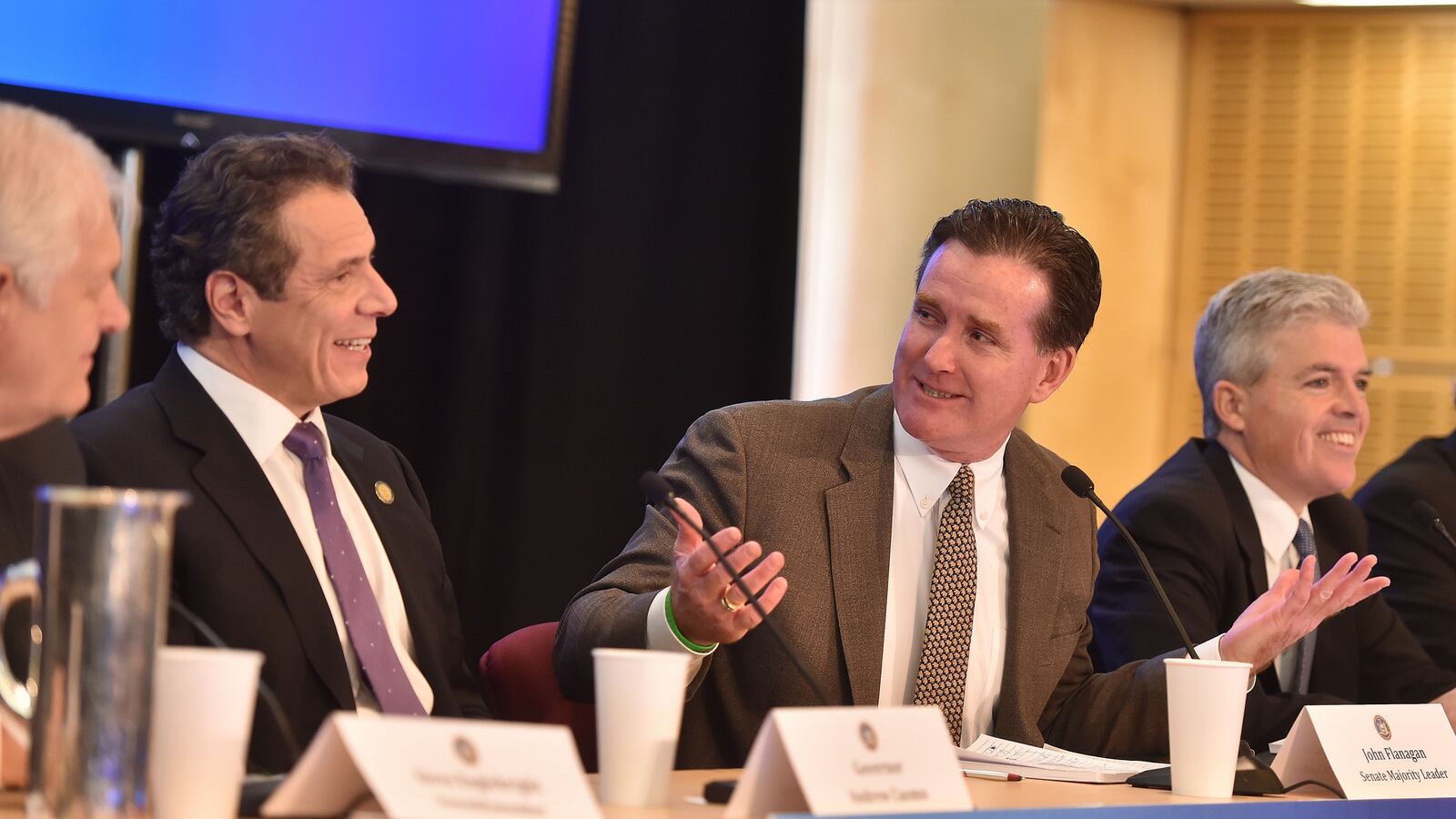Senate Majority Leader John Flanagan finally weighed in on New York’s pending teacher evaluation legislation Tuesday, promising an “extensive review” of the current push to untie test scores from teacher ratings.
In many ways, Flanagan is the last piece in the political puzzle surrounding the teacher evaluation changes, which the Assembly has already endorsed and the governor signaled he will likely not fight. With his statement, Flanagan, a Republican, suggested he is unlikely to support the bill as is, but also did not reject the legislation outright. This leaves the door open for passing a bill this session, but possibly with changes or strings attached.
Specifically, Flanagan said he was concerned that the bill could create increased testing since every district could create its own assessments, a concern that State Education Commissioner MaryEllen Elia has also expressed.
“We are performing an extensive review of this legislation to determine the best path forward,” Flanagan’s statement read, adding later: “The last thing we want to do is to make a mistake that rolls back the progress that has been won on behalf of the students of our state.”
Teacher evaluations, and the extent to which they should be tied to test scores, have been a hot topic in New York for nearly a decade. While supporters argue test scores provide an objective way to gauge whether teachers are helping students learn, critics say they exacerbate a test-focused culture and are an erratic and unfair way to rate educators.
The topic hit an inflection point in 2015 when Gov. Andrew Cuomo backed a plan in which test scores could count for as much as half of an educator’s evaluation. Though the legislation passed, swift backlash caused the state’s Board of Regents to pause the use of 3-8 math and English test scores in teacher evaluations.
As the Regents’ original pause runs out of time, officials have started to figure out how to revamp the state’s evaluation system. The state teachers union launched a major push to tackle teacher evaluations this session and found support in the Democratic-led Assembly.
Last week, the Assembly passed a bill that would prohibit the state from mandating the use of standardized test scores in teacher evaluations. Instead, the bill would allow districts to craft their own assessments.
Officials like Elia have argued this creates the potential for double testing, since students would have to take any newly created assessments in addition to the state’s traditional standardized tests. (Students must take state tests under federal law.)
State teachers union officials have dismissed this concern, arguing that districts can use assessments teachers would give to students anyway or choose “group measures,” which allow teachers to pool results on the state tests.
“I think this is very misleading,” Jolene DiBrango, executive vice president of the New York State United Teachers, said about the double testing argument on Monday. “We have every confidence in our teachers that they would not be creating systems that would add additional testing to students.”
Still, Flanagan appears to have latched onto that concern, saying that creating additional testing is an outcome that “nobody – not students, not parents, not teachers, nor myself or my legislative colleagues – wants.”
In addition to tweaking the teacher evaluation bill, Flanagan may also push for other education changes at the end of the session. For instance, he has been supportive of charter schools in the past, and his statement alludes to “other education reform issues” that he may want to address.
“In the coming weeks and months, we will have important discussions with all of the stakeholders in the education community on this and other education reform issues and then together we will all act accordingly,” Flanagan’s statement said.

